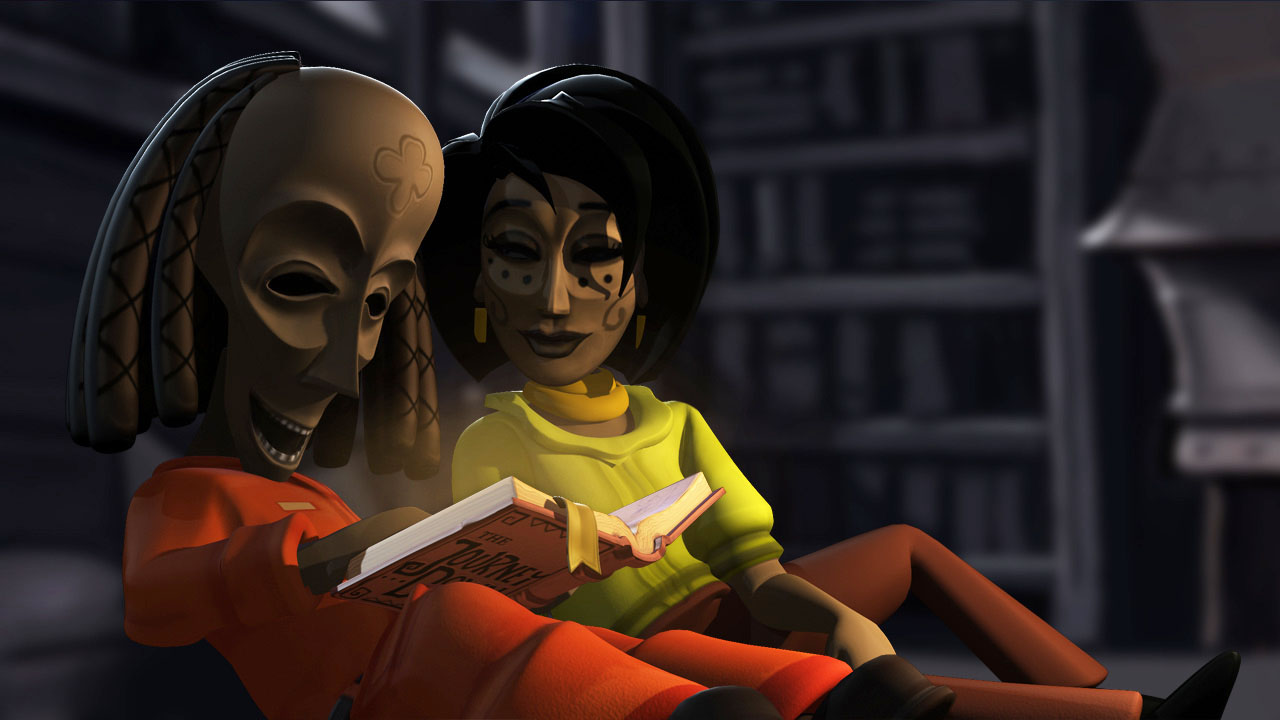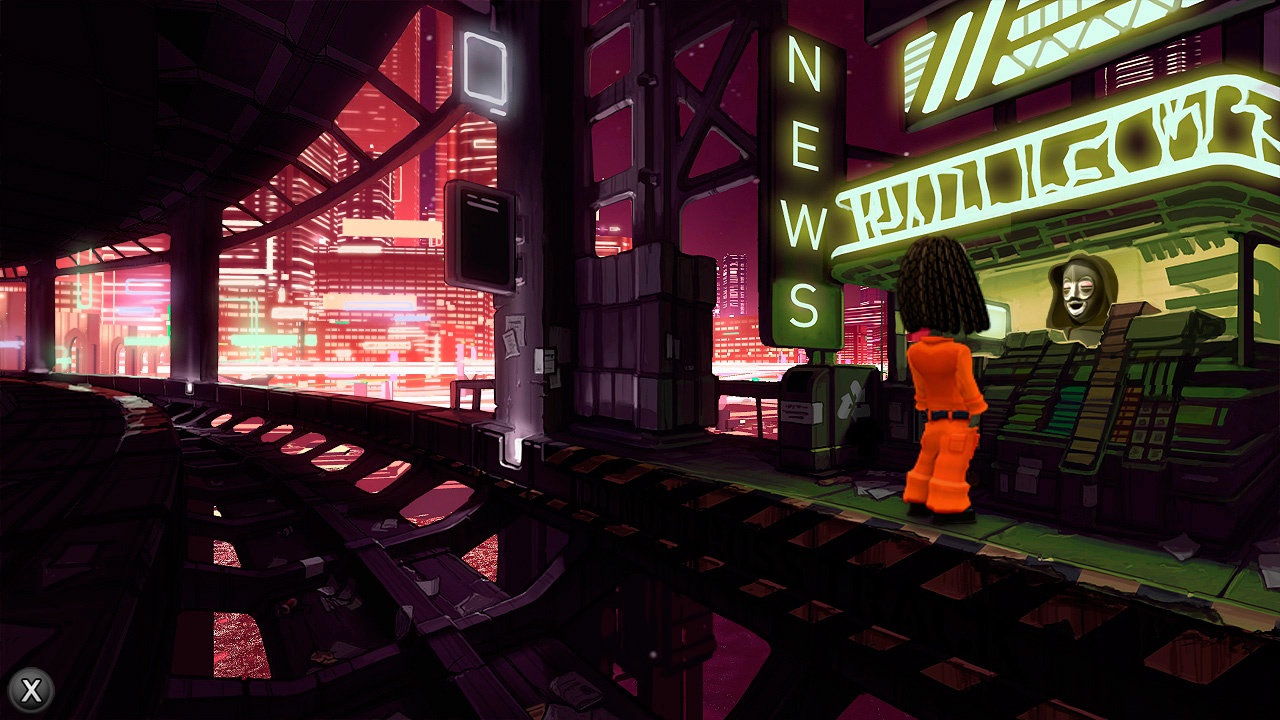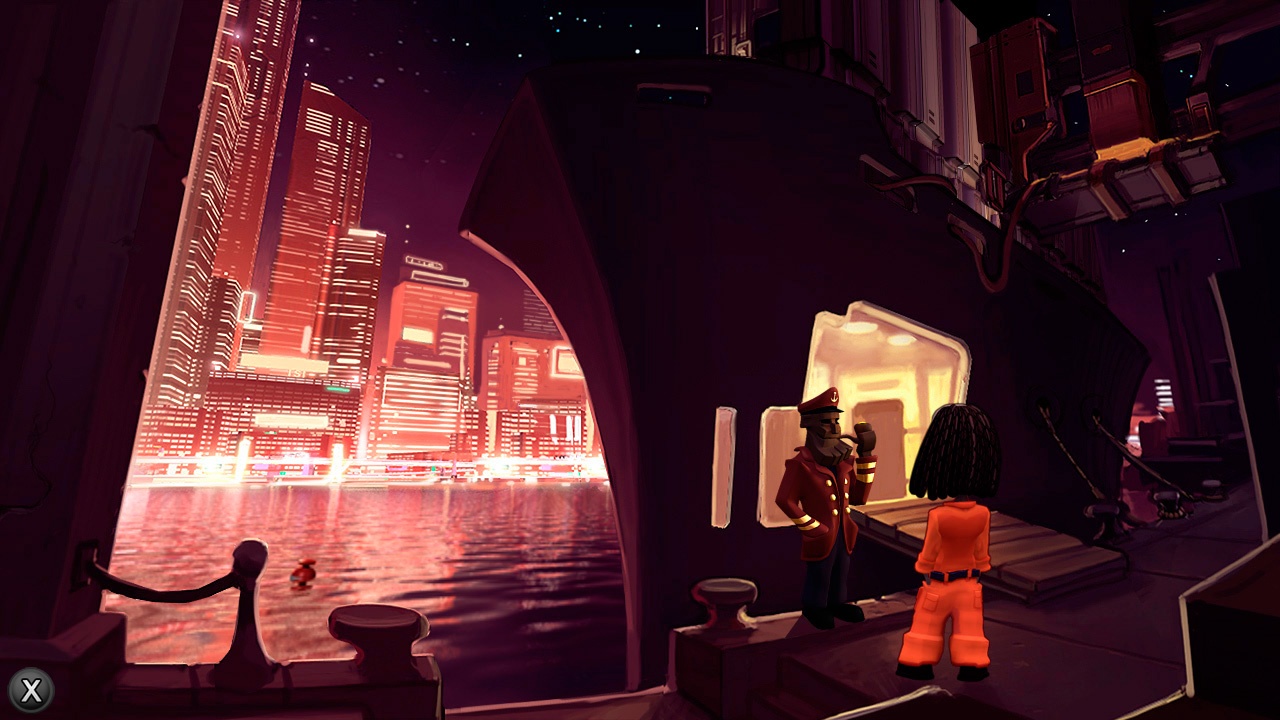
Where Lucasfilm will always be renowned for the conception of the Star Wars franchise, LucasArts will always, arguably, be best remembered for The Secret of Monkey Island, Day of the Tentacle and Grim Fandango. All three of these titles are instantly recognisable and will forever go down within the lore of videogaming. Their point-and-click style were the early stepping-stones in creating adventurous worlds; often containing immersive storylines laced with a certain style of humour. Although others have tried, many games since then have failed to emulate the success of these early titles; mainly due to missing a special charm that only LucasArts could muster.
With the release of The Journey Down: Chapter One on the Nintendo Switch, it seems that Skygoblin has recaptured that missing ingredient, producing a point-and-click adventure that captures that early charm, yet brings it smack up-to-date with its graphical presentations and accessible mechanics. As the title implies, this is the first chapter in a trilogy of titles; the remaining two releasing very shortly after this first outing. Originally released eight years ago as a low-res PC game, this remake has been substantially upgraded with a smoother HD aesthetic, full voiceovers and additional locations and puzzles.
The story revolves around the mad-cap adventures of Bwana and Kito, two garage attendants whose franchise is in serious debt after their gas supplier changes hands. Down on their luck, they meet the acquaintance of Lina, a university lecturer who is searching for a long-lost journal; her investigations leading her to the hapless duo. Knowing that their adoptive father, Kaonandodo, kept a library of books within his room, the trio soon come across the fabled pages; its contents revealing a long-forgotten secret. They soon find themselves on an adventure that will take them far from their home in the sleepy city of St. Armando and into a twisting plot of danger and corruption, as well as revealing the secrets of their long-lost father.

The game follows a straightforward control scheme in the mechanics of point-and-click adventures. Its use of navigating a cursor to highlight objects and interacting within the environment evokes a very old-school feel to its premise. However, The Journey Down cleverly takes out the gimmicky elements of the adventures of old; instead, opting for a more streamlined approach to puzzle-solving with direct commands or object combinations instead of interactions such as ‘open’ or ‘pick up’. It brings a more modern feel to the game, yet still retains the charm of the retro classics.
Item manipulation is achieved with the use of a pictorial menu that highlights selections along the bottom of the screen. By scrolling through them, you can select certain objects and place them within the handcrafted backdrops to change certain factors within them. For the most part, finding the solutions to the puzzles that present themselves to you is relatively straight forward. There aren’t too many strange concoctions that make no sense, although there can be instances where the solutions aren’t necessarily, physically possible within the real world. Despite this, the mechanics in which this selection process works is very easily accessible, producing a smoothness to the gameplay.
Locations within the game are nicely presented, with animated backgrounds and foreground characters. The lights of St. Armando glimmer in the reflective shoreline and the local establishments of Kingsport Bay are brought to life with the local townsfolk. Its upgraded HD visuals produce a nice aesthetic, with a cartoon presentation that easily sits on par with a tele-visual presentation. However, due to a differing style of graphical artwork between backdrop and characters, there can be a stylistic clash in certain locales that can give the illusion of one part not fitting with the other. Saying that though, the visuals of this game are most definitely one of its high points.

The atmosphere of the game has a very distinct Caribbean flavour to the proceedings, with a series of catchy reggae tones playing throughout and a series of African-inspired characters and mask-like faces that gives the game a very distinctive look. Voice acting is well implemented, with the two central characters pertaining a certain humour and charm with their vocals. If you’re familiar with the character of Rastamouse, then you’ll know where I’m coming from. However, other characters within the game don’t fare so well, in particular, the main boss villain of the piece has a very unusual accent that doesn’t really blend in with the rest of the game.
As with a lot of other titles within its genre, there is a lot of back-and-forth movement within The Journey Down as you wander from place-to-place in search of items, solutions or missed character interactions. It can produce a small feeling of repetition, especially if you find yourself stuck with a particularly challenging puzzle. However, the feeling of satisfaction in solving the games’ challenges keeps you going forward with an engagement in further uncovering the game’s plot. However, there isn’t a massive amount of content here, with a typical playthrough not lasting any more than two to three hours; depending on your skill level. What there is here though, is thoroughly engaging and entertaining.
This isn’t a genre that is to everyone’s taste. However, if you’re looking for an old-school, nostalgia ride with a modern element, then this first chapter of The Journey Downs’ trilogy will satisfy immensely. With an intuitive control scheme, easy-to-play mechanics, upgraded visuals and intriguing story, this is most definitely a title that is worth a look. Saying that though, I have come across more engaging titles within its genre; albeit ones that possess a very different style of presentation. If you’re searching a game that contains that element of LucasArts’ magic though, then you’ll find it here but be warned, I do think that this is a title that only has a limited appeal.

REVIEW CODE: A complimentary Nintendo Switch code was provided to Bonus Stage for this review. Please send all review code enquiries to press@4gn.co.uk.
Subscribe to our mailing list
Get the latest game reviews, news, features, and more straight to your inbox
Thank you for subscribing to Bonus Stage.
Something went wrong.
-
Gameplay - /10
0/10
-
Graphics - /10
0/10
-
Sound - /10
0/10
-
Replay Value - /10
0/10





